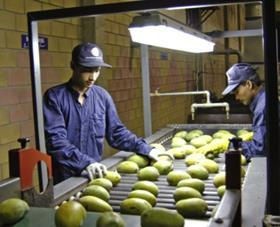
Pakistan is considering rolling out national food safety standards in light of an EU threat to ban its mangoes, and the detection of non-organic arsenic in rice production.
The federal cabinet is discussing passing the NAPHIS Bill – drafted by the National Animal and Plant Health Inspection Service with the assistance of EU-funded technical programme TRTA II – which proposes the establishment of a national food safety authority and a national food-safety control system in line with international standards.
A decision to approve the Bill, which was viewed by the cabinet on 14 May, is pending the discussion of points raised by the Ministry of Science and Technology, TRTA II’s quarterly newsletter said.
“TRTA II is confident that this piece of important legislation will bring important national benefits by providing government with the tools to eliminate non-compliant operators from access to the market,” the newsletter said.
“This is considered to be a vital development step for Pakistan, since non-compliant operators who produce unsafe food and agricultural products endanger the livelihoods of other agro-food businesses, as well as taking risks with consumer health, both inside Pakistan and in important export markets.”
Two recent events illustrate the importance to Pakistan of getting a clear focus on sanitary and phytosanitary (SPS) management, TRTA II said: a warning in May from the EU about rising Pakistani mango rejections at border entry posts due to the presence of fruit-fly, and the detection of manufactured arsenic in Pakistani rice.
Pakistan’s authorities and fruit trade responded quickly to the EU mango warning by immediately restricting EU exports to hot-water-treated product from approved farms, and government departments are now seeking to significantly upgrade existing phytosanitary controls, TRTA II said.
'The Ministry of Commerce, in collaboration with the FAO and the TRTAII project, is supporting a pilot study to assess the effectiveness of small scale hot water treatment facilities, and based on the results the Ministry of National Food Security and Research will consider the feasibility of introducing a mandatory requirement for the hot water treatment of mangoes for export,' TRTA II said.
There is currently no official requirement that Pakistani mangoes for export be hot-water treated, and there are reported to be only three such treatment plants in the country, TRTA II said.



